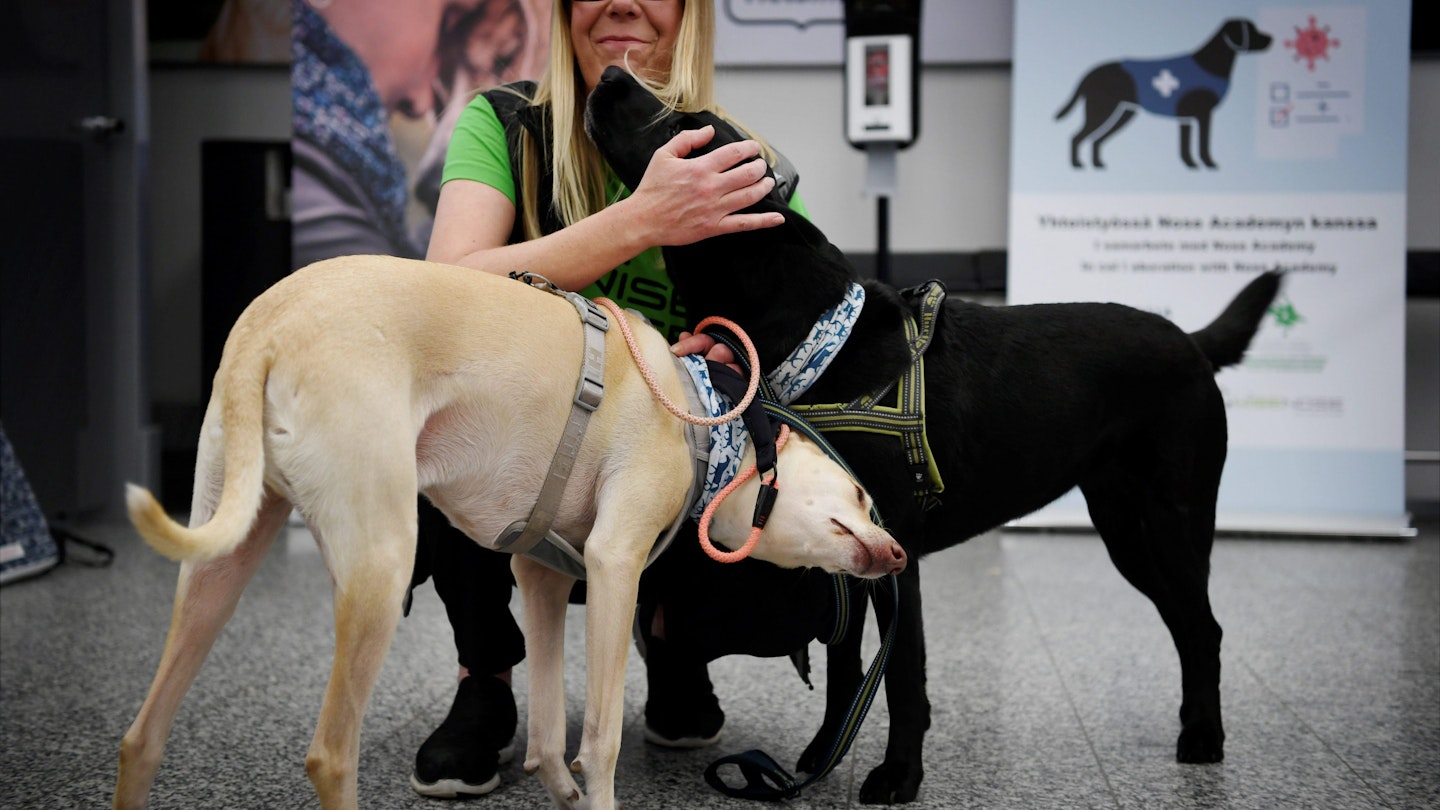COVID-19 Sniffer Dogs at Helsinki Airport
Specially-trained dogs capable of sniffing out coronavirus infections in passengers have been deployed in airports around the world. Helsinki Airport is the latest to avail of their services, employing four dogs this week — ET, Kössi, Miina, and Valo — who have demonstrated their ability to detect COVID-19 in people before they show symptoms.
As airports ramp up their testing capabilities to help passengers travel safely, some have enlisted the help of sniffer dogs. Recently, Helsinki Airport became the first in Europe to deploy these dogs after a similar trial was launched in Dubai this summer.

How the Sniffer Dogs Work
In Helsinki, the specially-trained dogs can detect the virus within just 10 seconds and identify its presence from much smaller samples than PCR tests used by health care professionals. According to researchers from the University of Helsinki, the entire process takes about one minute. Passengers supply a sweat sample by dabbing their necks with a wipe, which is then placed in a jar for the dogs to analyze. The test is conducted at a safe distance with jars lined up next to others containing different scents. Once a dog detects the virus, it will either yelp, paw, or lay down, signaling for the passenger to undergo a nasal swab test for confirmation.
According to the university, these dogs achieved almost 100% accuracy in preliminary trials, detecting the virus in humans even before symptoms developed.
Working in Shifts
The four sniffer dogs, ET, Kössi, Miina, and Valo, operate in shifts, with two on duty while the others rest. Anette Kare, from Finland’s Smell Detection Association, noted that “dogs need to rest from time to time. If the scent is easy, it doesn’t wear out the dog too much. However, if there are numerous new scents around, dogs can tire more quickly.”

Further Research in Europe
Additional experiments have been conducted across Europe to evaluate if odor detection dogs can accurately identify COVID-19. The charity Medical Detection Dogs collaborates with the London School of Hygiene and Tropical Medicine, exploring whether their dogs, typically trained to detect malaria, cancer, Parkinson’s, and bacterial infections, can be retrained for rapid, non-invasive COVID-19 diagnoses.
Conversely, researchers in Germany recently trained army sniffer dogs to distinguish between samples from healthy patients and those infected with COVID-19, achieving a remarkable detection accuracy of 94%. Their findings were documented in the BMC Infectious Diseases journal. The research team concluded that in regions with limited access to diagnostic testing, detection dogs could potentially play a significant role in the mass identification of infected individuals. Nevertheless, further work is necessary to comprehend the full potential and limitations of using scent dogs for viral respiratory disease detection.
This article was first published on August 12 and updated on September 24, 2020.




